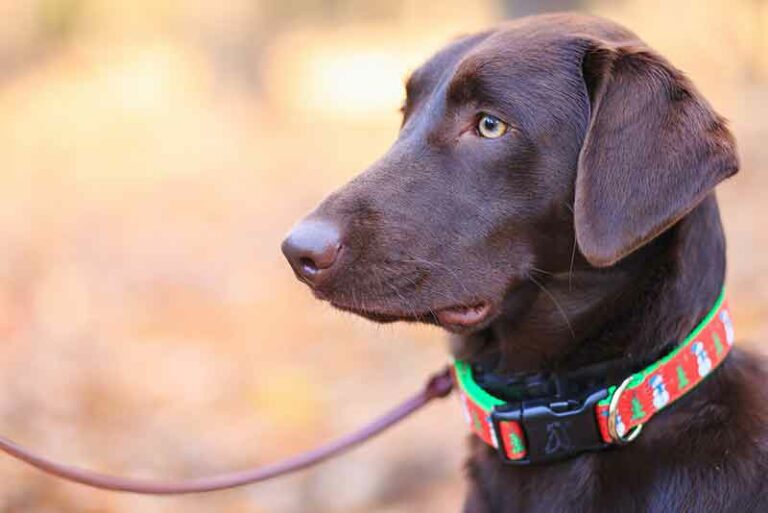How To Get My Dog To Listen To Me? Truth Unveiled!
You must be worried about your dog not listening if you are here. I can relate because I have been there with my slightly stubborn puppy, Sparkles. After countless sleepless nights trying to figure out what to do, I finally found some ways to get my dog to listen to me, and I will be sharing them with you in this post.
So, if you’re wondering how to get my dog to listen to me, here is how. First, you must have lots and lots of patience. And then, when training, use positive reinforcements when he listens to you. Also, giving your dog enough exercise every day will visibly improve his mood, minimizing his need to become mischievous.
Let’s find out in-detail what could you do to get your dog listing to your instructions!
How To Get My Dog To Listen To Me?
- Your dog requires your patience
One of the first things I put into practice when getting my dog to listen to me is to be very patient when teaching the basic commands. Your dog may frustrate you by failing to listen to your commands responsibly.
But remember that this process will take time and will also be affected by factors such as;
- The Dog’s Age
- Temperament
- Breed, Etc.
Your dog will be more responsive to your commands if he feels that you are making an effort to be patient, calm, and cheerful around him.
- You should keep your dog on a consistent schedule
Dogs do best when you follow a regular schedule while teaching them new skills. If not, your dog might be confused about what you want them to do. For example, if you and your sibling take turns training your dog to listen, this might sometimes backfire.
Your calling signals may differ from those of your sibling, so when you give the basic commands, your dog may decide to obey your sibling instead of you. So, another way I tried to get my dog to listen to me was by making me the only person training him and not someone else.
Use the same voice tone, orders, and words each time. Even timing is essential; try to train your dog at the same time every day for about 15 minutes.
- You have to be positive and encouraging when training
Another one of the things I did when trying to get my dog to listen to me was to be positive and encouraging when training. If your dog doesn’t listen to you or follow your orders, don’t try to punish him. Instead, try to be encouraging and give your dog another chance.
Reward your dog for every good behavior so that he will always listen to you. However, try only to use rewards when necessary; otherwise, your dog may come to expect them before actually listening to you, making it more difficult for you to train him. When your dog doesn’t listen to you, try not to scold or shout at him.
- You have to be mindful of your body language when training
Another thing I did not think through when finding ways to get my dog to listen to me is my body language! It is because, even if they can’t truly understand what you say, dogs can tell whether you’re concerned by your body language. Be careful not to send your dog mixed messages.
For instance, you cannot verbally act excited by telling your dog to “come here” while continuing to ignore him when he is close by.
Your dog will then become confused, and he might decide to ignore your commands the next time you give them entirely. He does this because he is aware of how you once treated him.
- You need to burn off the build-up energy in your dog
Another thing that can make your dog not listen to you is that he is building up energy inside. The symptoms include your dog getting excited about minor things, like going for a quick stroll and being easily distracted.
To get my dog to listen to me in such instances, I understood that it is imperative for them to be exercised daily for 10-20 minutes so that there won’t be excess energy building up.
Make sure to include exercise in the routine because your dog will pay attention to you when he is tired.
- You need to look into your dog’s mood changes
Dogs experience mood swings in the same ways that people do. Some dogs are naturally anxious, so even a small environmental change will affect their behavior.
Things like moving his sleeping spot, switching to a variable schedule of rewarding behavior, or factors like separation anxiety and adding a new pet to your family can make him ignore you and stop responding to your commands.
So to get my dog to listen to me, I always look into his mood changes, whether he is happy or displaying any signs of stress, aggression, or anxiety.
My Dog Doesn’t Listen To Me Without Treats. Why?
Is your dog always expecting a treat for good behavior, such as listening to your command? My dog had the same issue. I sometimes find it challenging to have pet treats with me, so when I ask him to sit and he ignores me, I’m embarrassed in front of everyone.
So, why does your dog not listen to you without treats? It has nothing to do with the treats themselves; rather, it has to do with how they are employed to teach your dog to listen to you.
As an example, do you frequently show your dog the treat before he listens to your commands? Do you instinctively put your hand in your trouser pocket before your dog responds to you? If the answer is yes, then there is the answer to the problem.
Although it may seem insignificant, dogs are highly perceptive animals. So they are aware of these behavioral signs and expect rewards before actually listening to you.
Then the dogs enter a ‘stubborn mode,’ as they do not like to listen to you without treats. Therefore, if you are using treats like food as rewards, try not to give them all at once.
Instead, cut back on the portions every day until your hand is empty. You can also rub the food in your hands so that the smell remains even if you present your dog with an empty hand.
This means you can train your dog to listen to you no matter the situation by using the proper commands, positive rewards, a calm voice, clear body language, and being patient, joyful, and encouraging.
Thanks for reading this post. Stay with us for more interesting posts like this.




![Proper Dog Walking Etiquette [Do & Don't + Tips].jpg](https://jackrussellowner.com/wp-content/uploads/2023/11/Proper-Dog-Walking-Etiquette-Do-Dont-Tips-768x513.jpg)



